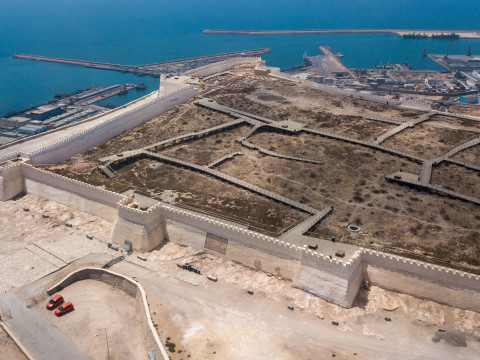
My art agenda: Sarah Pickstone
Published on 24 October 2018
Sarah Pickstone, alumna of the RA Schools, discusses the inspiration behind her new works in Burlington House, her co-operative studio and the democratic nature of drawing.
My paintings are a valentine.
My recent works to mark the Royal Academy’s 250th anniversary, “An Allegory of Painting”, are on display in the entrance areas of Burlington House (4 Sep–Aug 2019). The paintings are a valentine to the Swiss-born painter Angelica Kauffman, one of the founding Members of the RA. Kauffman was a force of nature – a hugely successful artist in her day and much celebrated in Britain, her home for 15 years.
When I was a student at the RA Schools in the early 1990s, I walked beneath her four roundel paintings of “The Elements of Art” in the front hall of Burlington House without looking up and seeing them. These images of women artists – sleeves rolled up – were originally painted by Kauffman in 1778-80 for the RA’s first custom-built home at Somerset House. But the idea of the Neoclassical seemed frivolously removed from my art-student self – instead I was looking for inspiration to Masaccio’s frescoes of St Catherine or Cindy Sherman’s photographic self-portraits.
But having made paintings based on women writers and artists through history – culminating in The Writers Series (2010–14) and the book Park Notes (2014) – I began to look again, interrogating my own artistic lineage.
Kauffman showed up and we began a conversation.
She took off her silver-powdered wig – you can see her standing, at the back next to Mary Moser, in The Royal Academicians in General Assembly (1795) by Henry Singleton – and we shook hands. She spoke to me about being part of a classical language, about allegory and storytelling. Allegory has contemporary resonance I think, for being able to hold more than one idea or story at once.

An Allegory of Painting is a two-part homage to Kauffman’s ceiling works. The Rainbow is a transposition of the roundel Colour from Kauffman’s Elements of Art and now hangs in the ramp space by the RA Café. Belvedere is a painting that responds to another Kauffman roundel, Design, which was selected by Christopher Le Brun PRA for the new RA Collection Gallery. My painting is set where the original is usually seen, in the Burlington House ceiling. I drew from these paintings when they were in storage and know them intimately, bare of frame. I have interpreted the way Kauffman structures her images through colour and followed her system of mark-making. So here I am, sleeves rolled up, making two large oval paintings for the place where I trained years ago. It is still one of the best postgraduate art schools. It’s exciting to be showing An Allegory of Painting in the New RA and I wonder at the beautiful circularity of this project.
Video: the making of Sarah Pickstone's 'The Rainbow'
We join Sarah Pickstone in her studio as she makes her major work inspired by Angelica Kauffman RA.

Colouring, 1778-80

Composition, 1778-80

Design, 1778-80

Invention, 1778-80

I’m lucky to work in a studio in central London
It's called Cubitt Artists. We have run as a co-operative for 25 years, with a great outreach education programme. We also have a fantastic gallery which offers a bursary for up-and-coming curators.
I teach drawing – and everyone can learn to do it.
I teach at the Royal Drawing School – a postgraduate school in London with public courses taught by artists. I love teaching nearly (but not quite) as much as I love making, and it always feels like a privilege.
Everyone can learn to draw, it is the most democratic of media – no costs and no rules. The attention any one of us gives to making and seeing helps generate ideas that feed back into politics, economics, the sciences and arts. For me Kauffman’s “Elements of Art” offer a strong image of this artistic identity – in praise of those who make art everywhere.
From the autumn 2018 issue of RA Magazine, issued quarterly to Friends of the RA.
Find Sarah Pickstone's work in the front hall of Burlington House and the ramp down to the RA Café.
Related articles
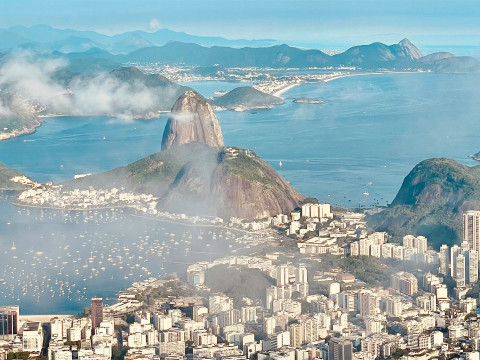
Five Brazilian cultural icons from the 20th century
28 February 2025
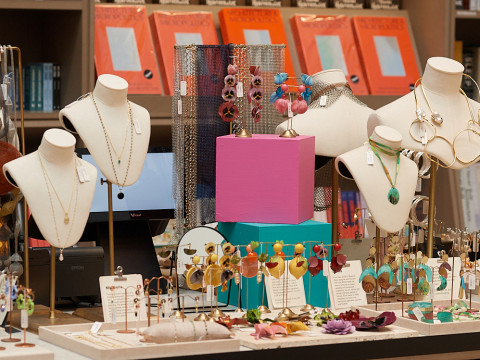
A love letter to the gallery gift shop
18 November 2024
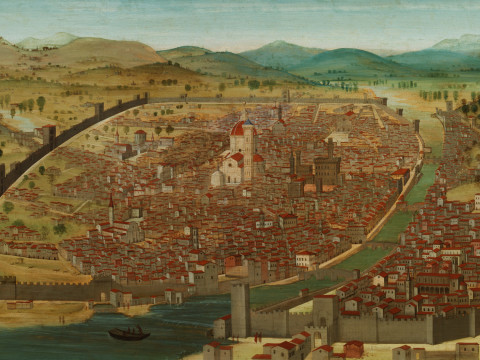
Painting the town: Florence in 1504
15 November 2024
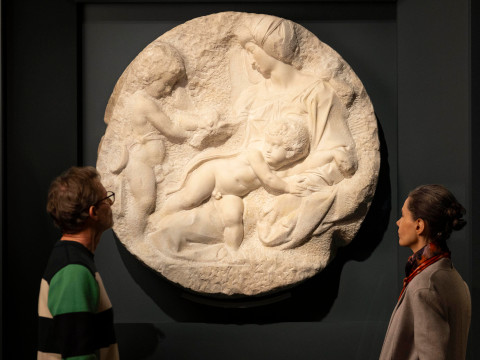
Moving a masterpiece
7 November 2024
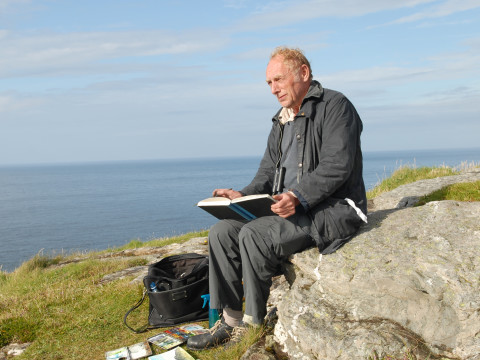
In memoriam: Norman Ackroyd RA
20 September 2024
